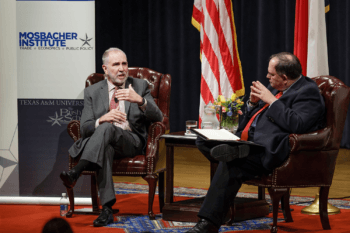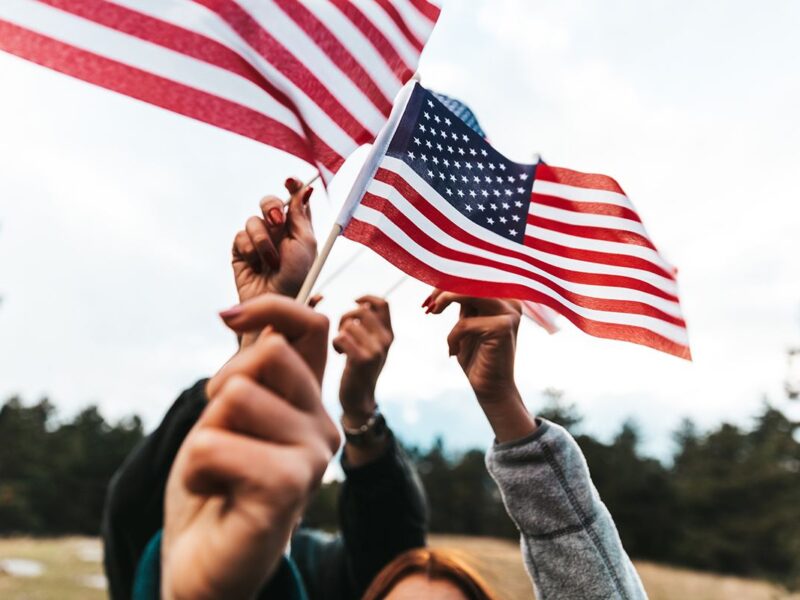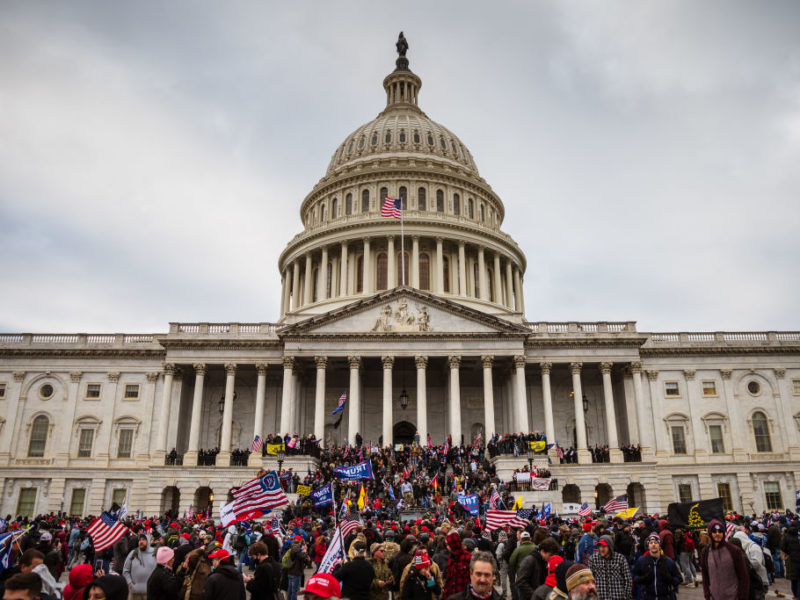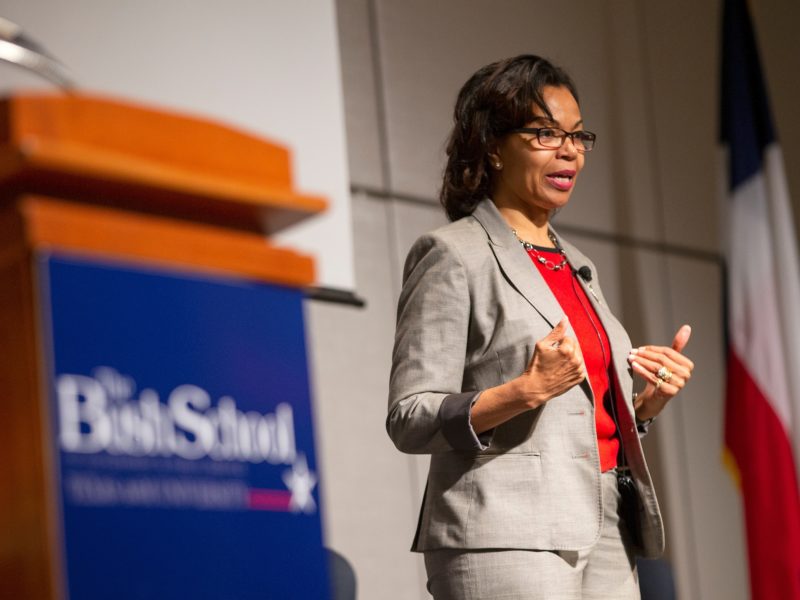Young On Religious Freedom

Texas A&M President Michael K. Young spoke Tuesday about religious freedom in U.S. foreign policy matters as part of a continuing lecture series hosted by the Bush School of Government and Public Service.
“We all know religion is capable of glorious things,” said Young during the talk titled “Freedom of Religion and the Global Growth of Democracy,” the latest in the Mosbacher Conversations in Public Policy series, co-sponsored by the Mosbacher Institute for Economics, Trade and Public Policy, and the Scowcroft Institute of International Affairs.
The president, who is also a professor of public policy at Texas A&M’s Bush School, has broad experience across legal, public service and diplomatic arenas, including a stint as Ambassador for Trade and Environmental Affairs in the Department of State during the administration of President George H.W. Bush.
Young worked extensively on the legal framework for the reunification of Germany, and it was during this time, he said, he experienced first-hand how repressive regimes affect people as well as America’s relations with such governments.
Young, who served on and chaired the U.S. Commission on International Religious Freedom from 1998 to 2006, told the audience that religious freedom is a human right, and that countries that suppress freedom of thought and belief suffer the most from political and economic turmoil.
Religious freedom is a moral and ethical imperative, Young noted, saying religion weaves through the lives of people in myriad ways, including how they think about life and death and how they raise their children.
“To the extent that they’re not permitted to think about that affects their capacity to live their full potential as human beings,” Young stated.
He said throughout history, the forces at work behind freedom movements, from German unification to American abolitionism, had powerful religious underpinnings. “Religion moves people in their individual lives,” he said, “so it shapes them in a collective way as well.”
Religious persecution is a global problem, he asserted, saying over 74 percent of countries suffer from violence linked to religion. From a government perspective, there are challenges, he noted, because at the heart of most religions, it is appropriate to have an allegiance to a higher authority than the government. Or the government seeks loyalty from a certain group, so favors one religion over the other, generating conflict.
“Government restrictions over religion are the single best predictor of violence,” Young explained.
The U.S. should lead by example, he said, by weaving principles of free thought and belief into foreign policy, because doing so is in America’s best interest. Countries with freedom of thought and belief make good partners for the U.S., he said.
Countries with freedom of religion have lower incidents of armed conflicts, higher health outcomes, less income disparity, higher education standards for women, lower wage gaps, lower poverty and higher livability, Young noted.
“It creates the kinds of countries we can do business with, geopolitically and economically.”
Following his lecture, Young was joined onstage for a Q&A by Mark Sidel, professor of law and public affairs at the University of Wisconsin.
Media contact: Lesley Henton, Texas A&M Division of Marketing & Communications.





